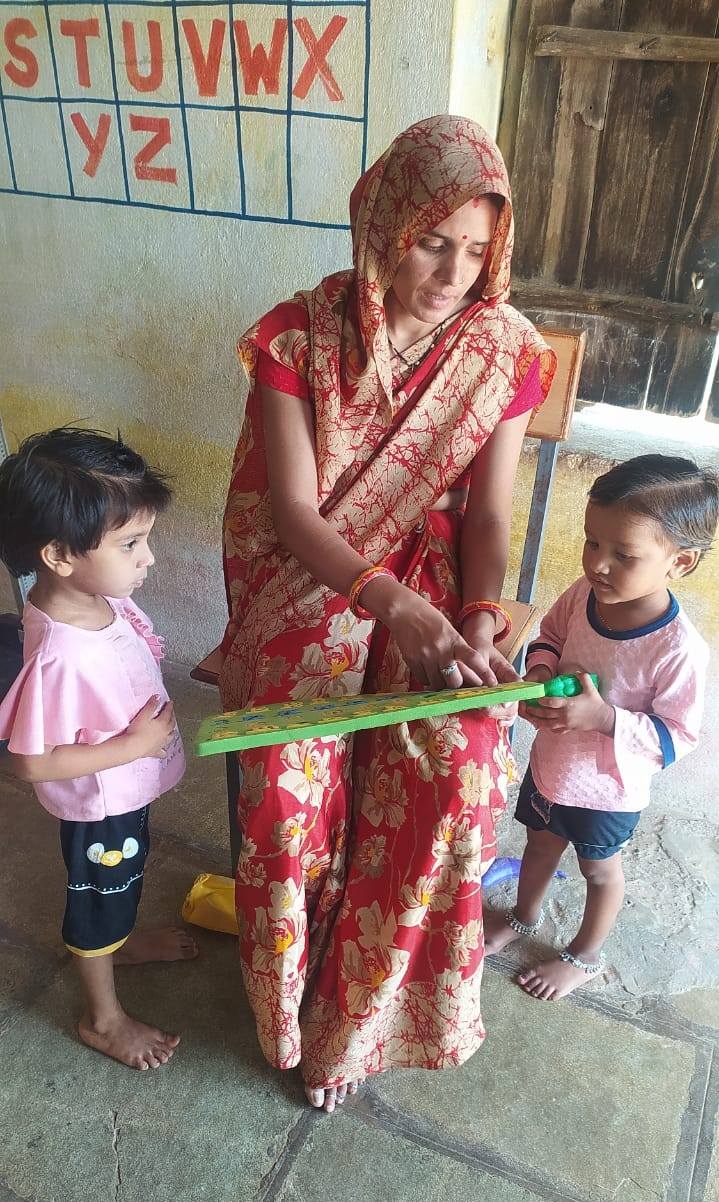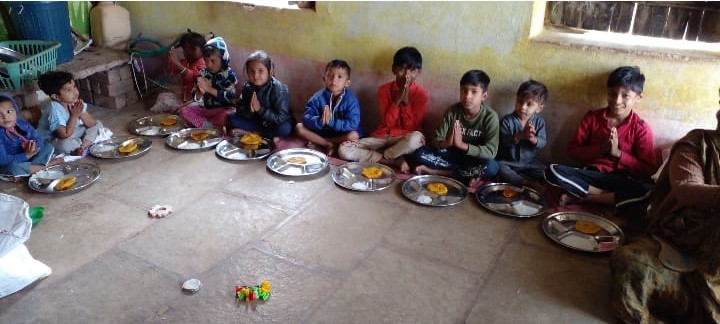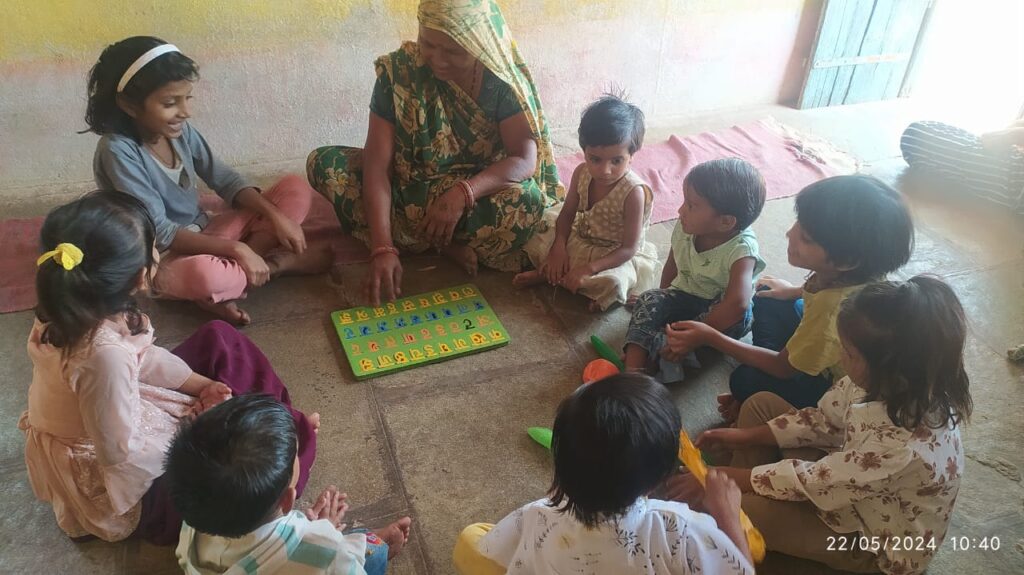Anganwadi worker Radha Solanki of Kobdar Bujurg village recalls the case of two girls who used to come regularly to the Anganwadi. She became worried when they stayed absent for two whole weeks. As part of its regular monitoring of the functioning of Anganwadis, the Health and Nutrition Programme run by Samaj Pragati Sahayog (SPS) assists in the mandatory daily home visits by Anganwadi workers, and so Radha, along with Preeti Chandel from the Programme, paid a visit to the children’s homes. On discovering that the girls had been admitted to a private school, the two women were dismayed.


The children’s guardians believed that such schools offered more advantages and ensured a better future, which made it worth paying a little more for a private school education. Preeti, on the other hand, thought that sending such small children to a distant private school was unnecessary. Also, like the families of other children who came to the Anganwadi, these too were farming and labouring families – the extra financial burden could only pinch them. The two women also spoke to the children, and learned that the little ones did not feel comfortable at the private school. Besides, they had to travel both ways by bus, and their school hours were long, which meant they would come home exhausted. Radha and Preeti felt the private school option might be better explored once the children were older.
The SPS workers invited both sets of parents to attend the monthly Anganwadi meeting for guardians. The parents were, of course, familiar with the basic welfare arrangements for children at the Anganwadi, but now they saw for themselves just how smoothly the local centre was run. And they realised how happy the children were with the snacks and hot lunches they received, and the various games they got to play. Care had been taken to have more guardians present than was usually the case at these meetings, and several of them shared their own experiences, telling the parents of the two girls how their children brought what they learned at the Anganwadi back home with them – taking off their slippers in the assigned place now, washing their hands before meals and after using the lavatory as they’d been taught, even holding forth to family members on the benefits of eating green vegetables! The parents who had taken their girls out of the Anganwadi understood that neither did the private school offer quite as much, nor were their children being able to learn well there. SPS helped them to appreciate how efficiently the Anganwadi functioned. Also, it is close to home, and the daily timetable is just three hours long. Impressed by all they had seen and heard, they decided to send their girls to the Anganwadi once more. The girls are delighted to be back, and their guardians feel reassured as well.

The importance of the Anganwadi centres and the ways in which they have contributed to the cause of child development in all its stages can hardly be overrated. Anganwadi centres are part of the Govt of India’s Integrated Child Development Services (ICDS) programme, set up to address the health needs of children below the age of six years through integrated services including supplementary nutrition, basic healthcare, and pre-school education. Unfortunately, the centres do not always follow the precribed norms, and there is often a shortfall when it comes to expected services. Which is why SPS is playing close attention to this issue. Its Health and Nutrition Programme, primarily concerned with improving health and nutrition for children and pregnant women, has been monitoring Anganwadis in 283 villages, in partnership with local communities.

These efforts have led to a better functioning of the ICDS in 197 Anganwadis. And in providing children with daily nutritious meals, Anganwadis are playing a particularly significant role in the country’s fight against malnutrition. To cite a small example, villagers themselves collect the resources needed to provide each child at their local Anganwadi with milk and a banana every day. Over 100 new ICDS centres were opened due to the pressure brought to bear on the administration by communities, through the SPS Health and Nutrition programme. Not only do the Anganwadis provide accessible and affordable healthcare, their workers bring to the table invaluable insights concerning local health issues and possible solutions. Their roots in the community add substance to their views and voices, making for a more effective spread of ideas.
The rigorous official protocols Anganwadi workers must follow include photo documentation, and keeping records of numbers, children’s weight, and other related matters. They are also supposed to keep an eye out for the children who drop out. When numbers drop drastically, the workers may find themselves reprimanded by senior officials. SPS helps with the implementation of tasks at Anganwadis, and seeks to ensure diligence and accuracy in record-keeping.
Writing: Abhishek Mishra
Source: Mukesh Mujalde
Photography: Preeti Chandel and Krishna Kushwah
